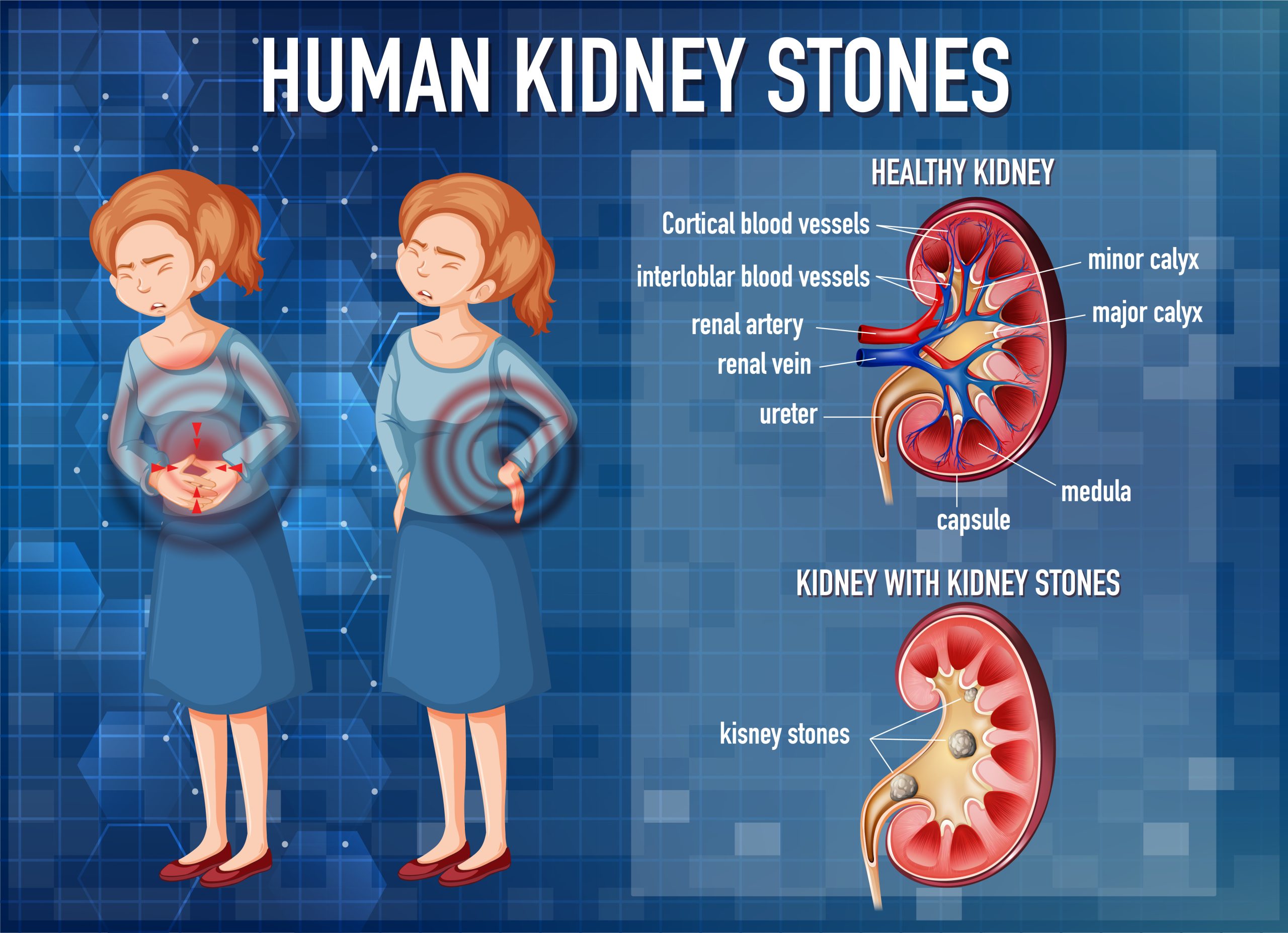Kidney stones are a common medical condition that affects millions of people worldwide. They form when there is an excess of certain substances in the urine, such as calcium, oxalate, and uric acid, which can crystallize and form small, hard deposits in the kidneys. These stones can cause excruciating pain and discomfort, and in severe cases, they may require surgery to remove them.
If you suspect that you have kidney stones, it is important to seek medical attention promptly to prevent complications. Here’s what you need to know about kidney stone treatment:
- Medical management Medical management is often the first line of treatment for kidney stones. Depending on the size and location of the stones, your doctor may prescribe pain medication, alpha-blockers, or medications to help dissolve the stones. In some cases, your doctor may recommend lithotripsy, a non-invasive procedure that uses shock waves to break up the stones into smaller pieces that can be passed more easily.
- Surgery In severe cases, surgery may be necessary to remove kidney stones. There are several surgical procedures available, including:
- Ureteroscopy: This procedure involves inserting a thin, flexible scope into the ureter to remove the stones.
- Percutaneous nephrolithotomy: This procedure involves making a small incision in the back










